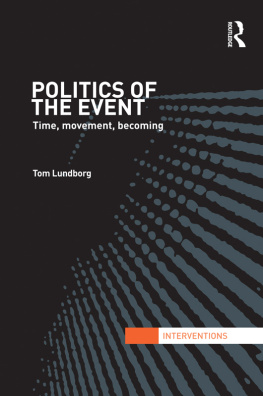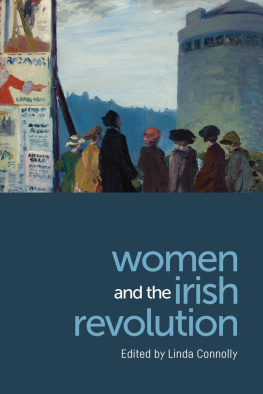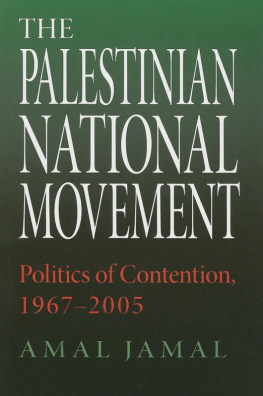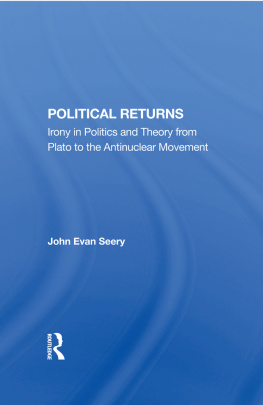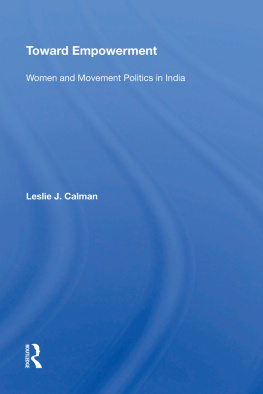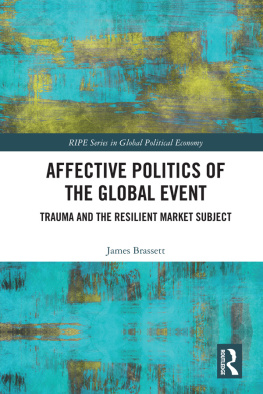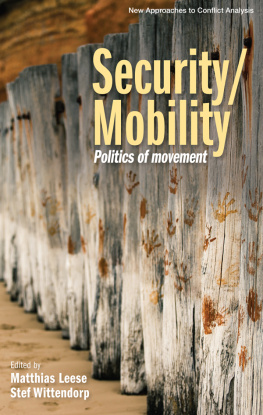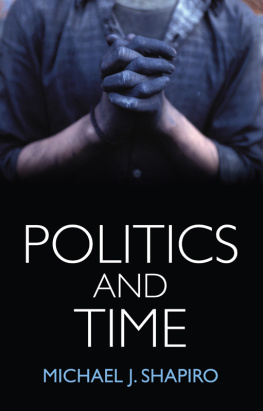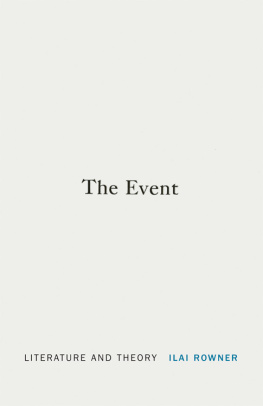Politics of the Event
Despite occupying a central role and frequently being used in the study of international politics, the concept of the event remains in many ways unchallenged and unexplored. By combining the philosophy of Gilles Deleuze and his concept of the event with the example of 9/11 as an historical event, this book problematizes the role and meaning of events in international politics.
Lundborg seeks to demonstrate how the historical event can be analyzed as a practice of inscribing temporal borders and distinctions. Specifically he shows how this practice relies upon an ongoing process of capturing various movements of thought, sense, experience, and becoming. However, the book also demonstrates how these same movements express a life and reality that elude complete capture, highlighting the potential for alternative encounters with the event, encounters that constantly threaten to undermine the limits and imaginary completeness of the historical event.
This book offers an exciting new way of thinking about the politics of encountering events, arguing that at the heart of such encounters there are always elements of uncertainty and contingency that cannot be fully resolved or fixed. It will be of great interest to students and scholars of international relations, cultural studies, and history.
Tom Lundborg is a research fellow at the Swedish Institute of International Affairs, Sweden.
Interventions
Edited by Jenny Edkins, Aberystwyth University and
Nick Vaughan-Williams, University of Warwick
As Michel Foucault has famously stated, knowledge is not made for understand-ing; it is made for cutting. In this spirit The EdkinsVaughan-Williams Interventions series solicits cutting edge, critical works that challenge mainstream understandings in international relations. It is the best place to contribute post disciplinary works that think rather than merely recognize and affirm the world recycled in IRs traditional geopolitical imaginary.
Michael J. Shapiro, University of Hawaii at Mnoa, USA
The series aims to advance understanding of the key areas in which scholars working within broad critical post-structural and post-colonial traditions have chosen to make their interventions, and to present innovative analyses of important topics.
Titles in the series engage with critical thinkers in philosophy, sociology, politics and other disciplines and provide situated historical, empirical and textual studies in international politics.
Critical Theorists and International Relations
Edited by Jenny Edkins and Nick Vaughan-Williams
Ethics as Foreign Policy
Britain, the EU and the other
Dan Bulley
Universality, Ethics and International Relations
A grammatical reading
Vronique Pin-Fat
The Time of the City
Politics, philosophy, and genre
Michael J. Shapiro
Governing Sustainable Development
Partnership, protest and power at the world summit
Carl Death
Insuring Security
Biopolitics, security and risk
Luis Lobo-Guerrero
Foucault and International Relations
New critical engagements
Edited by Nicholas J. Kiersey and Doug Stokes
International Relations and Non-Western Thought
Imperialism, colonialism and investigations of global modernity Edited by Robbie Shilliam
Autobiographical International Relations
I, IR
Edited by Naeem Inayatullah
War and Rape
Law, memory and justice
Nicola Henry
Madness in International Relations
Psychology, security and the global governance of mental health
Alison Howell
Spatiality, Sovereignty and Carl Schmitt
Geographies of the nomos
Edited by Stephen Legg
Politics of Urbanism
Seeing like a city
Warren Magnusson
Beyond Biopolitics
Theory, violence and horror in world politics
Franois Debrix and Alexander D. Barder
The Politics of Speed
Capitalism, the state and war in an accelerating world
Simon Glezos
Politics and the Art of Commemoration
Memorials to struggle in Latin America and Spain
Katherine Hite
Indian Foreign Policy
The politics of postcolonial identity
Priya Chacko
Politics of the Event
Time, movement, becoming
Tom Lundborg
Theorising Post-Conflict Reconciliation
Agonism, restitution and repair
Edited by Alexander Keller Hirsch
First published 2012 by Routledge
2 Park Square, Milton Park, Abingdon, Oxon, OX14 4RN
Simultaneously published in the USA and Canada
by Routledge
711 Third Avenue, New York, NY 10017
Routledge is an imprint of the Taylor & Francis Group, an informa business
2012 Tom Lundborg
The right of Tom Lundborg to be identified as author of this work has been asserted by him in accordance with the Copyright, Designs and Patents Act 1988.
All rights reserved. No part of this book may be reprinted or reproduced or utilized in any form or by any electronic, mechanical, or other means, now known or hereafter invented, including photocopying and recording, or in any information storage or retrieval system, without permission in writing from the publishers.
Trademark notice: Product or corporate names may be trademarks or registered trademarks, and are used only for identification and explanation without intent to infringe.
British Library Cataloguing in Publication Data
A catalogue record for this book is available from the British Library
Library of Congress Cataloging in Publication Data
A catalog record for this book has been requested
ISBN: 978-0-415-57934-6 (hbk)
ISBN: 978-0-203-14466-4 (ebk)
Acknowledgements
This book is the outcome of rewriting my PhD thesis. A lot has happened during this process, and the manuscript that I started with changed many times, often in unexpected ways. The Special Research Program at the Swedish Institute of International Affairs gave me the opportunity to do this work, for which I am very grateful. I also owe special thanks to the Economic and Social Research Council (ESRC) and the Aberystwyth Postgraduate Research Studentship (APRS) for funding my PhD.
The department of International Politics at Aberystwyth University provided an excellent research environment for writing the thesis and there were many people in Aberystwyth who contributed in different ways. I would like to express my appreciation and thanks to: Jenny Edkins for encouraging me to experiment with concepts and constantly pushing my thinking further; Patrick Finney for helpful comments and detailed readings of all the chapters of my thesis; Nick Vaughan-Williams for friendship and support, and for making me rethink many of my previous assumptions through numerous discussions; Darren Brunk, Ed Frettingham, Jay Hwang, Sebastian Kaempf, Susanna Karlsson, Petter Narby, Cian ODriscoll, Joao Reis Nunes and Andreja Zevnik for countless stimulating discussions. I am also grateful to Andreas Behnke for encouraging me to go to Aberystwyth in the first place and pursue my academic interests there further.
Two anonymous reviewers gave me extremely helpful suggestions on how to improve the general style as well as content of an earlier version of the manuscript and I would like to express my thanks to them for that. I am also grateful to the examiners of my thesis, Kimberly Hutchings and Richard Wyn Jones, for their helpful feedback and constructive criticism. In the process of completing this book I also received precious support from my friend Henning Lindahl who designed the image for the book cover, and Lisa Scholey who read all chapters with an eye to details. Last but not least I would like to thank my mother and father for giving their fullest support throughout the process of writing the thesis as well as this book.


